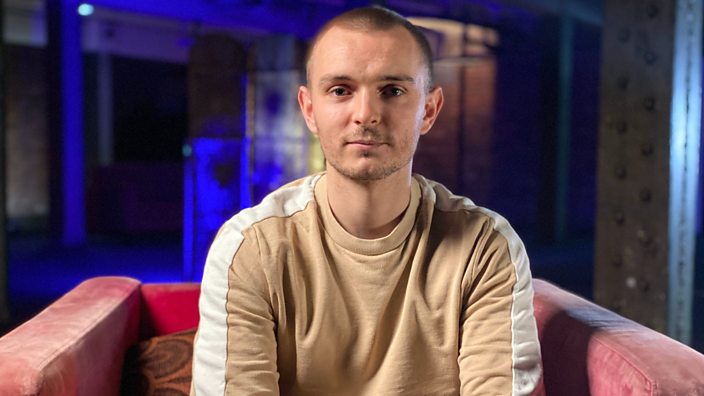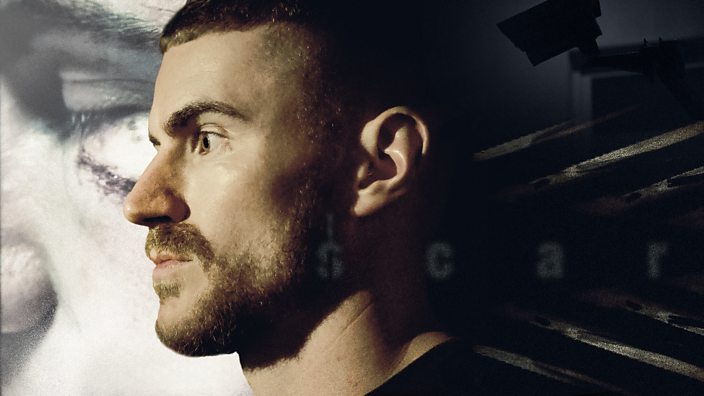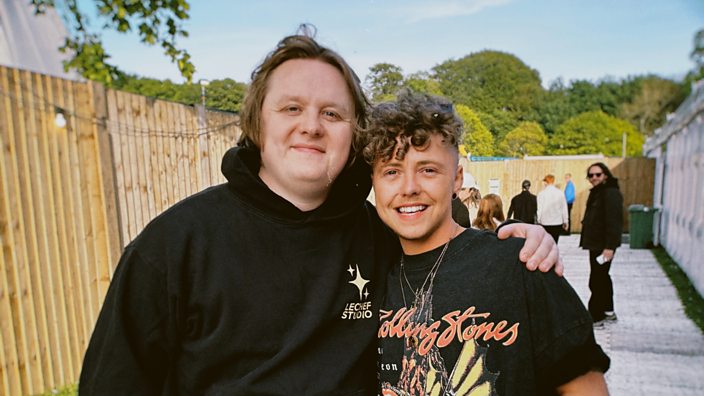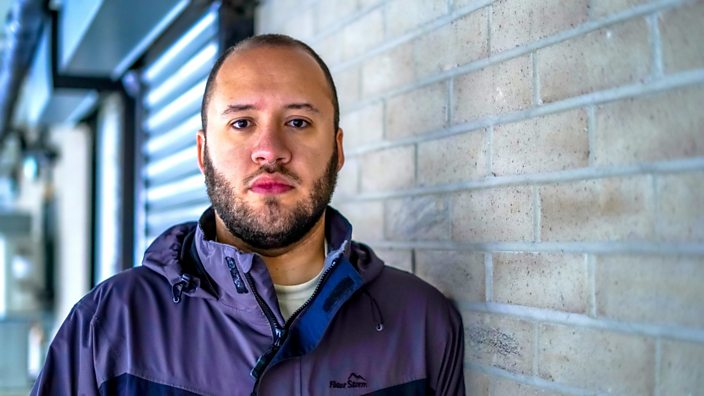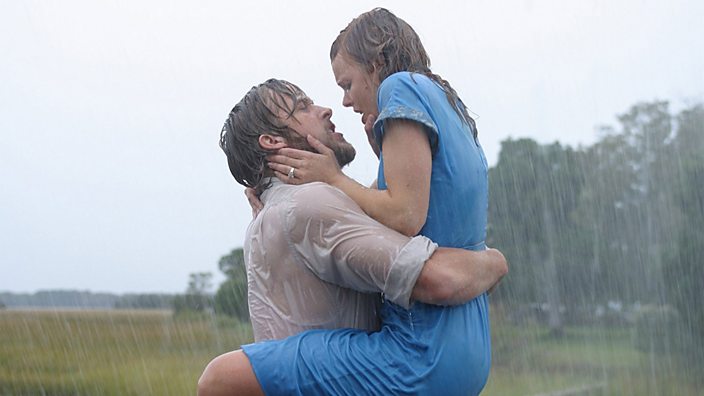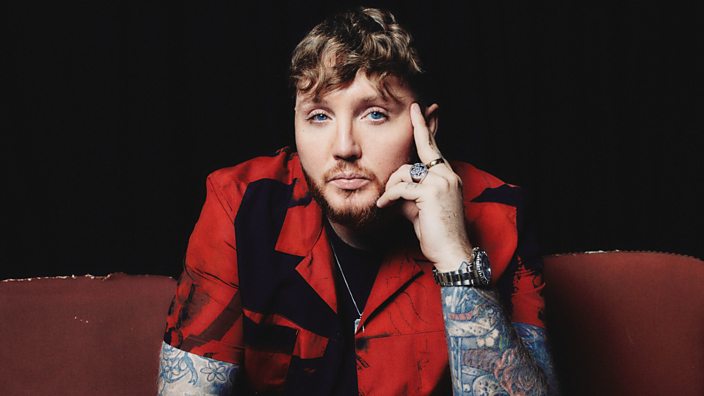 BBC / Summer Films / Ryan Saradjola
BBC / Summer Films / Ryan SaradjolaJames Arthur: Sometimes I curse my rise to fame
Musician James Arthur talks about his time in foster care, his use of antidepressants and his rise to fame in new documentary James Arthur: Out of Our Minds.
When musician James Arthur has experienced having panic attacks - at home or on stage - he describes the feeling as one of “impending doom”.
At their most severe, he’d have a physical reaction to the “catastrophising” going on in his head, which he says felt like a heart attack. He’d struggle to speak, to think and to breathe. "It’s just all doom and gloom," he says.
“I'm going crazy,” he’d think to himself while the panic attacks were happening, “I’m going to die."
Sometimes, he’d even have an ambulance called out for him. “This was a regular occurrence for me,” he adds.
Dealing with panic attacks is one of the topics the X Factor winner and chart-topping musician addresses in his new BBC Three documentary James Arthur: Out of Our Minds.
In the documentary, the Say You Won't Let Go singer also discusses his difficult upbringing that saw him enter foster care, his journey with the use of antidepressants and the impact of fame on his mental health.
 BBC / SUMMER FILMS
BBC / SUMMER FILMS“I'm not gonna sugar coat it,” the 34-year-old singer-songwriter says about making the documentary. “It was really hard, actually.
“I was doing it while making a move back to the North East to get back in touch with my roots. So I had to have some difficult conversations with family because I realised how important that was to me to, sort of, rebalance my own mind and to realign myself with the world, if you like.”
James, who grew up in Redcar, entered foster care as a teenager after truancy from school and family breakdown at home. Then, in 2012, he shot to fame after winning The X Factor. He’d go on to sell millions of albums, have number one hits and tour the world.
But his success was driven off course as his mental health contributed to behaviour which he now regrets.
“It was well documented that I struggled with fame in the early days, and I didn't really embrace that side of being a successful music artist,” James says.
“Sometimes I'm really grateful for the platform that I was given and how amazing that was and the life that I've been able to live [and] the opportunities that it afforded me.
“And then other times - when I'm not having such a good time - I sort of curse the whole thing because the aftermath of that made me very sick for a long time. There was a lot of stuff that I needed to undo. There was definite trauma off the back of going through something like that.”
James says he’s now made peace with his volatile rise to fame. “It's a part of me now. I needed to go back there and touch on the painful stuff in order for anyone to take me seriously whilst hosting a documentary about mental health. I had to sort of put myself in the trenches a little bit again.”
‘I have phobias of being social’
James was particularly interested in looking into the use of antidepressants while making this documentary. In England, 8.3 million people take antidepressants, according to NHS figures.
They’re a type of medicine used to treat clinical depression - among other conditions - and are thought to work by increasing levels of chemicals in the brain called neurotransmitters.
“I myself have grappled with the idea of being on medication over the course of the last six or seven years,” he says. “When I ended up at the doctors asking for antidepressants, I was at my wit’s end and I couldn't leave my house any more.
“This was at a point where I couldn't afford therapy so I took the pills and they helped me through a period of time, but I did become reliant on them.”
James eventually stopped taking them out of a fear they might be “changing” him - but, he says, he’s learnt there’s “absolutely a place for antidepressants”.
He adds: “Where I've seen them be more successful is alongside therapy - if you can get it - and alongside speaking to family and friends and being part of a community in some way.”
James says he knows many people from his hometown who take antidepressants. “The North East is an amazing place with an amazing culture. And people are very tough.
“But it's also important to mention it's a deprived area. It's difficult to get work there. And there's a lot of depression there.”
Nowadays, James says he’s much more equipped to deal with panic attacks and mental health challenges because he’s done things like cognitive behavioural therapy (CBT) - a talking therapy that can help you manage your problems by changing the way you think and behave - and “investing in community, friendships and family”.
He adds: “Exercise is absolutely paramount for me. Otherwise I'll be sedentary and I’ll give myself any reason I can not to go outside and do things and face the world and be social.
“I have phobias of being social because of deep-rooted childhood traumas, I think. Fear of rejection, all that sort of stuff.”
‘Music is a form of therapy’
James says the most inspiring part of making the documentary was meeting the members of Redcar CF, an amateur football team made up of players who have all struggled with their mental health or lost families and friends.
“One guy in particular, had lost his mum and both his brothers in the space of eighteen months, which broke my heart completely,” James says.
The members get together twice a week to play football and to chat about things they might be going through.
“The typical bloke in the North East, historically, would have found it hard to speak about their feelings. They might see that as a weakness.
“But these lads are inspirational. They're all there for each other at any time of the day or night, and they have a WhatsApp group, and they all feel as though they can say anything at any point.”
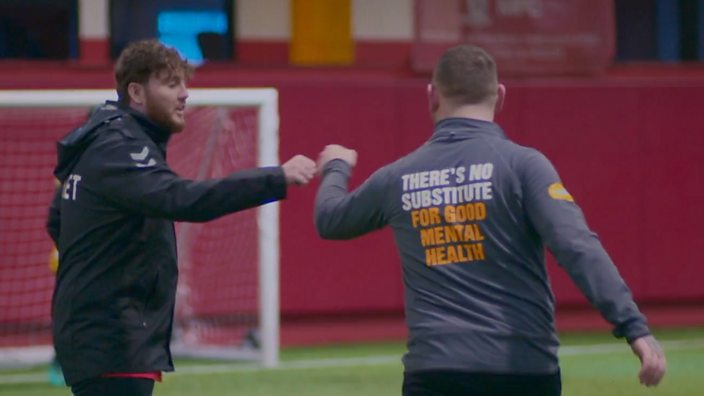 BBC / SUMMER FILMS
BBC / SUMMER FILMSThere was another member James spoke to who’d tried to take his own life but was stopped by his wife.
“He was a pretty happy-go-lucky guy with things that just got on top of him, and then he attempted his own life, which is something I can relate to,” James says. “I've been there myself.”
In the documentary, James talks about a night he considered ending his own life but was instead supported through it by his partner.
One constant in James’ life is, of course, music.
“I’m very lucky that I have music,” he says. “It's a form of therapy, for sure, anytime I get in a studio or I sit on a guitar and I wail about a bunch of gibberish at the wall.
“I think everyone can be creative. Making art, in any facet, is a really helpful tool in battling mental health issues, because the sense of achievement you get from creating something is massive.
“Music has always been a friend to me.”
Originally published 13 November 2022.



